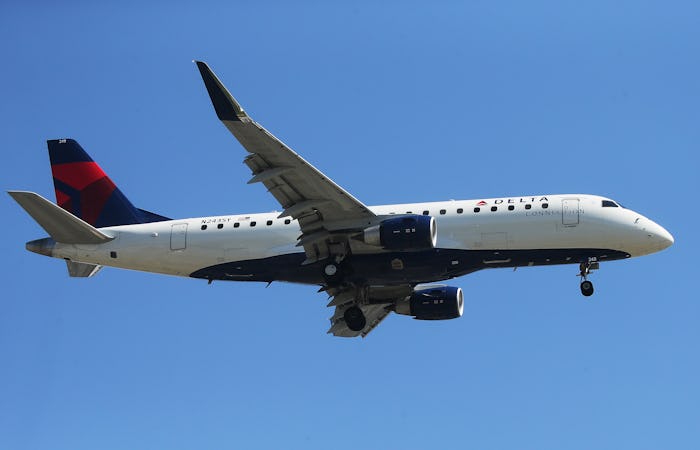Life

7 Jet Lag Hacks That Actually Work, According To Science, To Feel Better Fast
Travel is exciting, but nothing puts the damper on a trip faster than jet lag. No one wants to arrive at a destination feeling completely disoriented and exhausted, after all. So these jet lack hacks that actually work will help make your next faraway trip much more pleasant.
Officially known as desynchronosis, jet lag is a sleep problem that can adversely affect people who travel across many time zones in a short amount of time, as explained by the Mayo Clinic. It happens when your body's internal clock remains synced to the time zone of your original location, even though you're trying to function in a totally new time zone. Your inner clock hasn't caught up with its surroundings yet. Although this may sound like a mild problem, severe jet lag can cause concentration problems, extreme sleepiness, and even stomach troubles, as further noted by the Mayo Clinic. In other words, jet lag can suck the fun out of a vacation or make your work trip hellish in no time.
Thankfully, jet lag is a temporary condition, and there's a lot you can do to counteract it. By following these simple hacks, you'll probably feel much better the next time your plane lands in a totally new time zone.
1Regulate Light Exposure
Sometimes it pays to stay in the dark. "The most effective way to minimize jet lag is to regulate your light exposure. If possible start shifting your sleep 30 minutes — 1 hour per day before you fly," said Helen Burgess, director of the biological rhythms research lab at the Rush University Medical Center in HuffPost. If you're flying east for a trip, try exposing yourself to light during the morning before taking off. Conversely, get lots of light during the evening before you take off on a trip toward the west, as further explained in HuffPost. These tips might give you a head start on the light patterns in your new time zone.
2Limit Alcohol Intake
Sure, those little airplane bottles of booze are tempting. But limiting the consumption of alcohol during your travel may help with jet lag, because alcohol deteriorates your sleep quality, as explained by the World Health Organization. Knocking back a few may help you doze off more quickly, sure, but that rest won't be very restful. Plus, there's the risk of dealing with jet lag on top of a hangover, which is a rough combination.
3Consider Taking Melatonin
On the other hand, this sleep aid may be just what you need. Taking melatonin supplements may help travelers going eastward get to sleep at bedtime, as noted by Harvard Health Publishing. They might not be needed on the return trip, though.
4Pace Your Meals
Occasional fasts might also help plane travelers. In a test of the Argonne diet protocol, in which participants alternately feast and fast in the days leading up to a flight, those who followed the Argonne fast were much less likely to face jet lag, as outlined in Military Medicine. Hey, if anyone is invested in warding off jet lag, it's people in the National Guard, where the study took place.
5Chill Out
If you're willing to brave the cold, then this is a handy hack. "Taking a shower on the coldest setting could theoretically trigger a hormone response akin to what normally occurs waking up — helping to put you back on track. I do this regularly and when I’m fatigued the cold makes my brain feel like it’s coming back 'online,'" said science journalist Max Lugavere in Air Help. Enduring a cold shower after a long flight isn't for everyone, but it just might help if you're eager to shake off jet lag.
6Set The Stage For Sleep
When it's bedtime at your new location, make yourself comfortable in the unfamiliar environment. Bringing earplugs and a sleep mask can help you drift off, as noted by the National Sleep Foundation. You can ensure dark, quiet slumbers no matter what is going on around you.
7Stay Hydrated
As with any activity, drinking enough water is so important. Dehydration can worsen the effects of jet lag, and the dry cabin air also leaves you feeling parched, as noted in the Mayo Clinic. Sipping enough water during your whole journey can make the experience that much more pleasant. If you follow this and other tips, hopefully jet lag won't be much of a problem for your next trip.